CPE is excited to support ten undergraduate summer researchers working on clean energy and climate related projects. Meet them here!
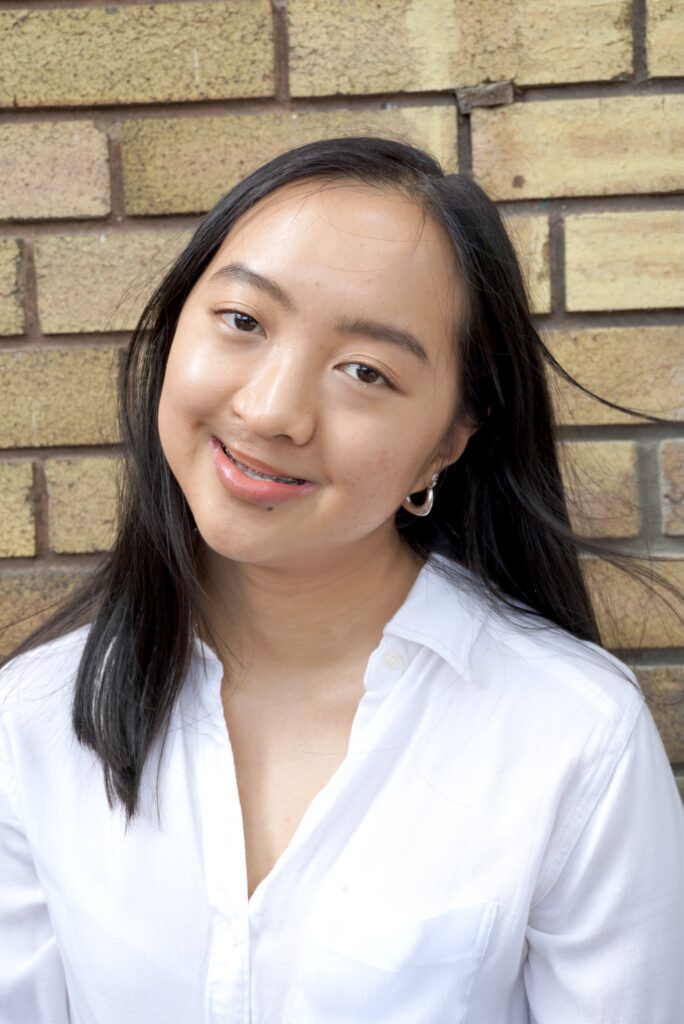
Amelie Desroches
UTM’s Department of Geography, Geomatics and Environment
“My summer research project, supervised by Professor Tenley Conway, will examine people’s perceptions of the urban trees they encounter in parks to understand the social benefits of trees in our cities. I will be conducting 100 intercept surveys of adults to gather the aforementioned data and analyzing the responses. The surveying sites will be in the York Regional Forests in Whitchurch-Stouffville. My research is pivotal in advancing nature-based solutions in cities—solutions that will mitigate climate change by maintaining tree-canopy and creating resilient communities of environmental stewards.”
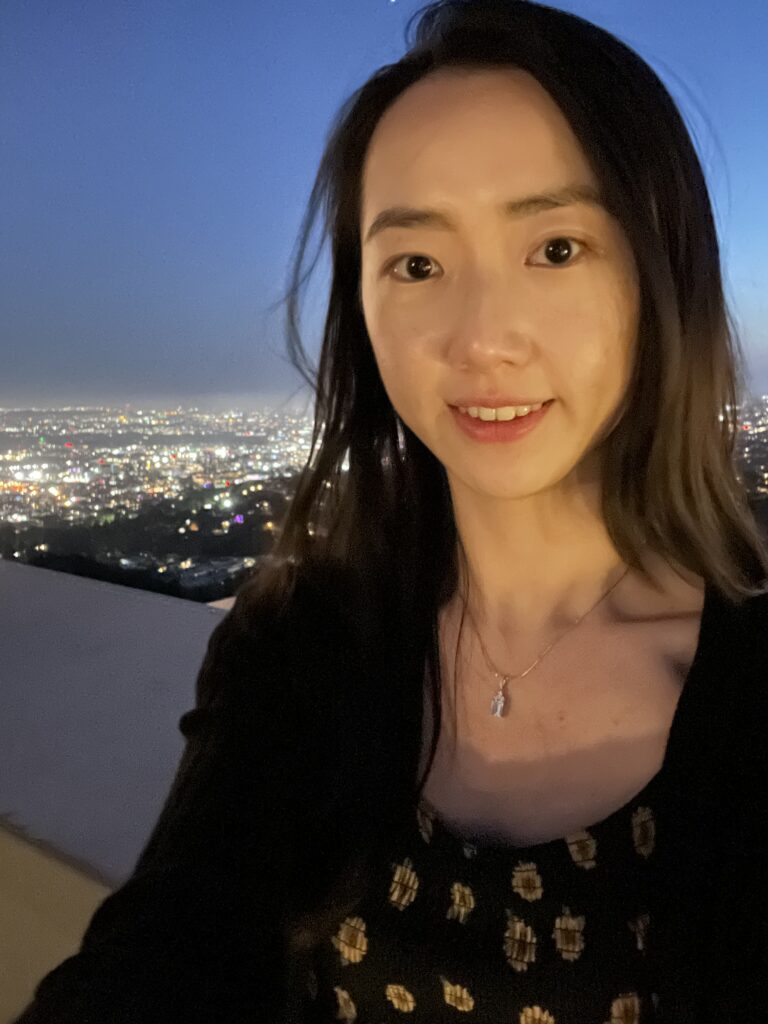
Katherine Liang
4th Year EngSci Energy Systems student
“I am a 4th year Engineering Science student majoring in Energy Systems. Through my undergraduate studies, I have developed a passion for applying electrical engineering knowledge to climate positive energy applications. My summer research topic focuses on improving the efficiency of 48V-to-1V power converters in automotive processors, which contributes to the high-level goal of accelerating the de-carbonization of the global transportation sector through improvements of power electronic converters. From this research project, I hope to contribute to mitigating the issue of high energy consumption in electric vehicle applications, thereby increasing the efficiency of the transportation sector, and achieving a just and equitable net-zero future.”
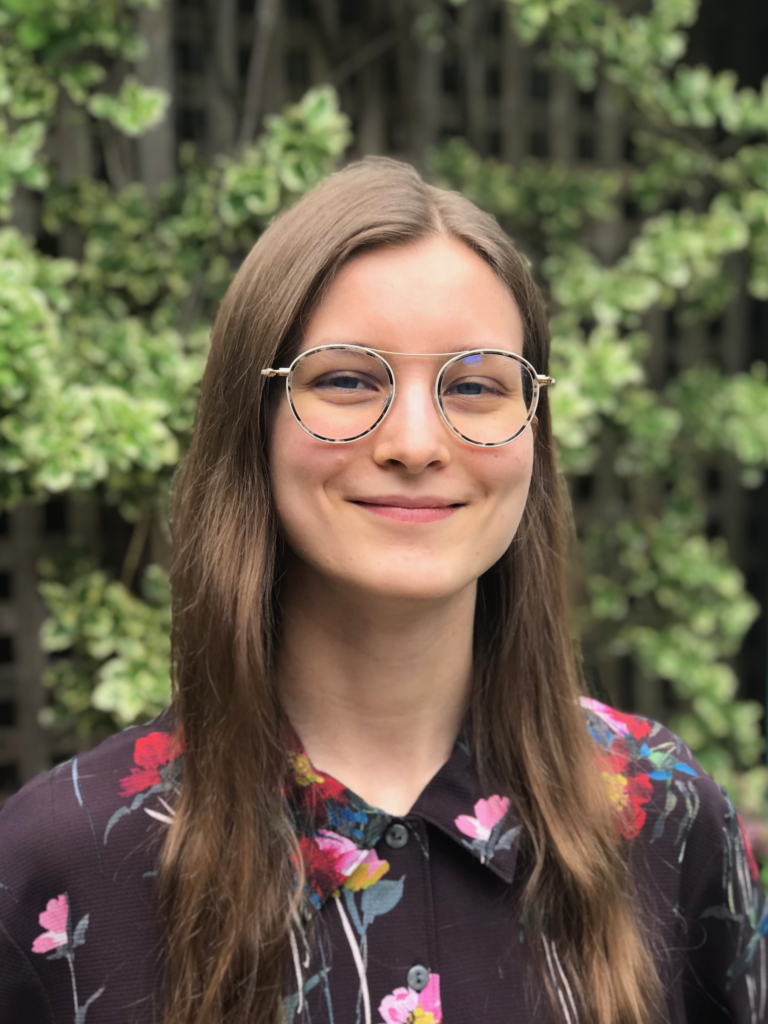
Michal Korteweg Davis
Engineering Science at UTSG
“I’m studying material use in new construction in cities, focusing on low-rise, high-density residential buildings. This work is motivated by simultaneous crises in housing availability and environmental degradation partly due to resource over-use. It forms part of an ongoing project in Professor Shoshanna Saxe’s group to identify existing options for building and city design that reduce material demand while maintaining function. Presently, data available in this field is very poor, limiting possible studies. My work focuses on developing the world’s first image-based infrastructure material analysis data set, with over a hundred buildings measured thus far.”

Karen Chen
Engineering Science at UTSG
This is my second summer as an undergraduate researcher with SOCAAR – the Southern Ontario Centre for Atmospheric Aerosol Research. As a continuation of my project from last year, I am investigating a phenomenon known as the ‘Holiday Effect’, which measures anthropogenic emission changes during various holiday seasons. Specifically, I am interested in conducting an analysis of nitrogen oxides (NOx) during the winter break. An additional avenue of my research is to compare methodology in determining a consistently effective approach to calculate emission change percentages. As a novel area of study and one that has yet to be well-researched in Canada, let alone, North America, the aim of my research is to provide insight into the impact travel and traffic pollutants produce.
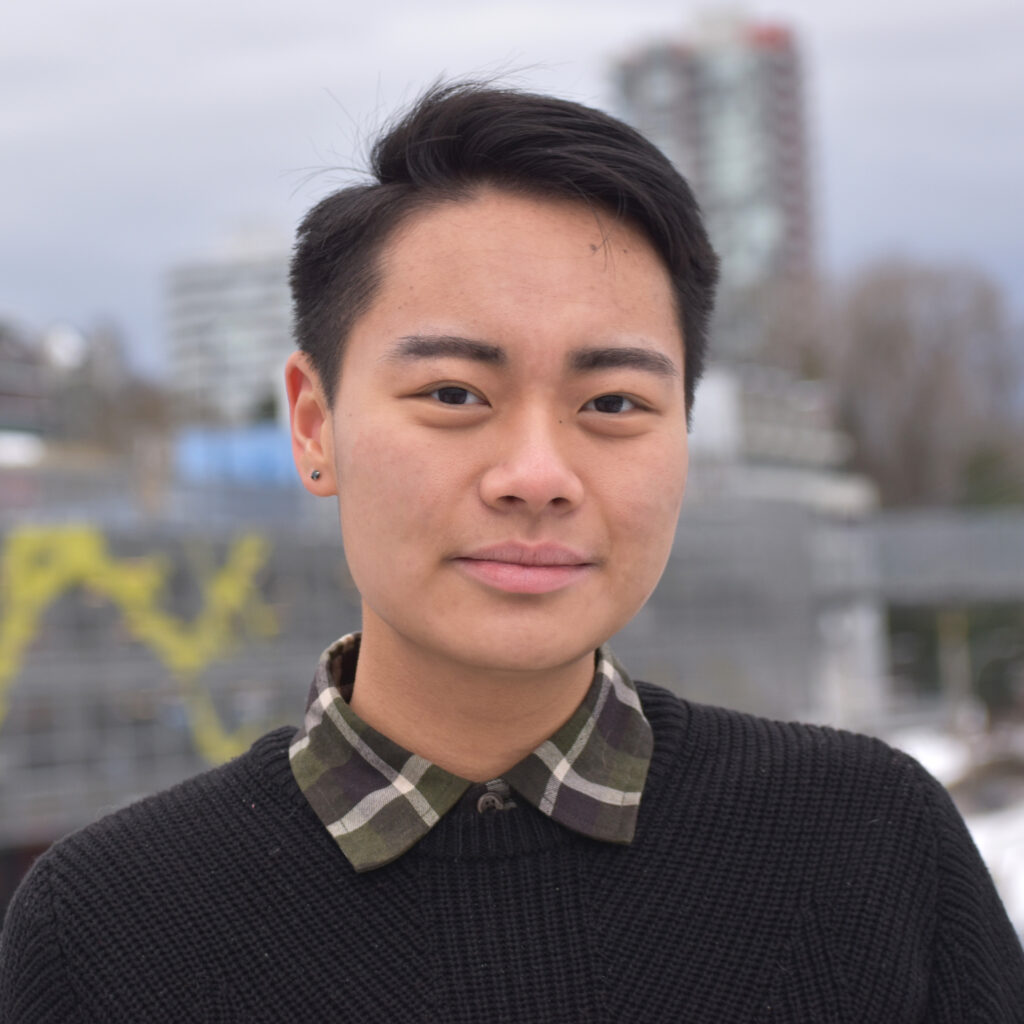
Tobin Zheng
Materials Science and Engineering at UTSG
This summer, I will be working on a project to develop activated carbon materials for electrochemical capacitors made from locally available biomass waste, particularly waste tea leaves. The aim is to design a process that will create a material with optimal pore structure for efficient energy storage while remaining affordable and sustainable.
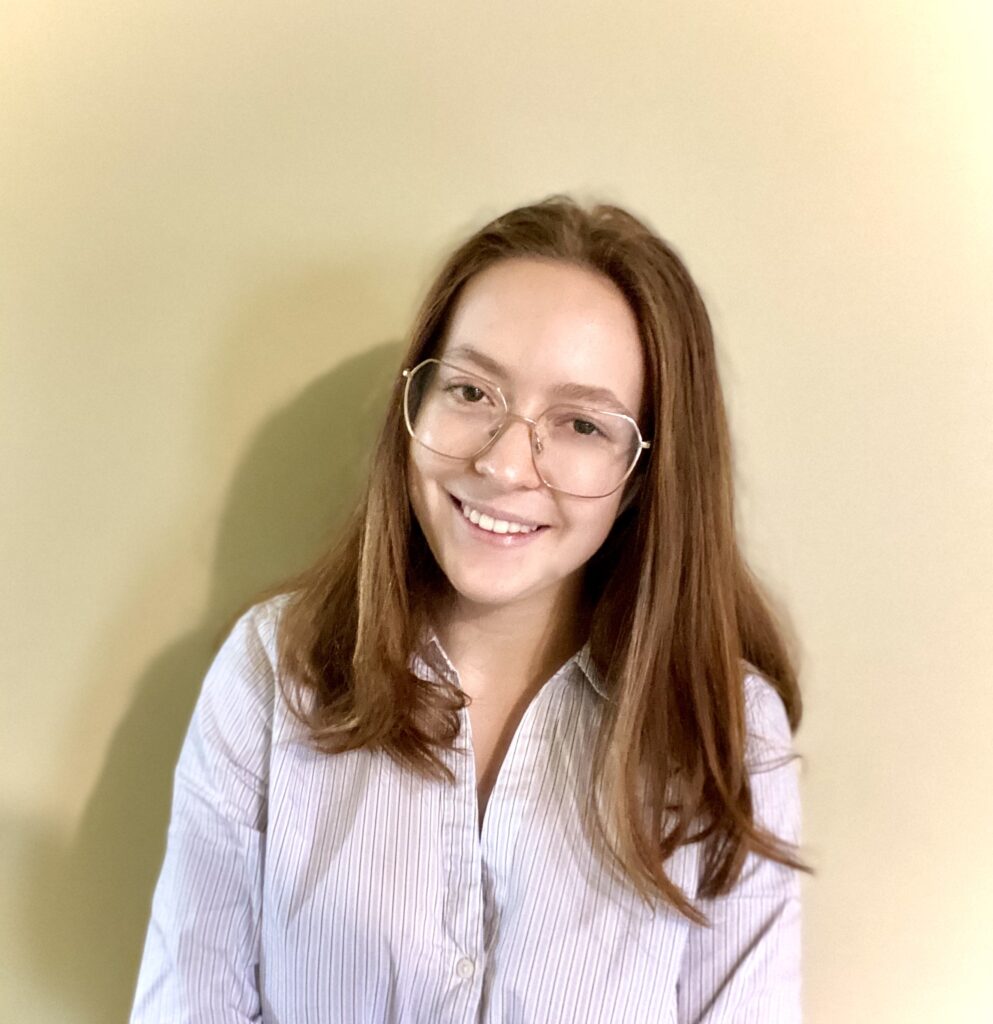
Amalie Wilkinson
UTSG’s Department of International Relations and Peace, Conflict and Justice Studies
Amalie Wilkinson is a B.A. student at the University of Toronto. She focuses on issues of international environmental governance and human rights. Her current research examines the interplay between climate change mitigation, clean energy and increased critical mineral extraction. It asks how clean energy is shaping the emerging lithium industry in Québec, Canada.
Amalie’s independent research operates in parallel with her work as an Undergraduate Research Assistant on a team at the University of Guelph and the University of Toronto, with partners at the University of Sydney and the University of California, Santa Barbra. The project examines lithium extraction across worldwide jurisdictions. Information about the project, funded by the Social Sciences Research Council of Canada (SSHRC), is available here: https://www.lithiumfrontiers.com/
Amalie is also active with the Stop Ecocide environmental justice movement in Canada. She is the Founding Director of Stop Ecocide Toronto and Communications Director of Stop Ecocide Canada.

Mishaal Kandapath
Undergraduate Research Intern in Atmospheric Physics at UTSG
“Currently working with Professor Debra Wunch and her team on quantifying greenhouse gas emissions in the GTA. We are looking into data from various ground-based and satellite sensors to determine the distribution of emissions over Toronto, ensure that the city is on track to meet its environmental goals, and to investigate the existence of relationships between site demographics and emission levels.”

Matthew Edghill
Biochemistry at UTSG
“Hello Everyone! I’m Matthew Edghill, a third year Biochemistry Specialist undergrad from Barbados. My research in the Mahadevan Lab involves two distinct metabolic engineering projects:
Firstly, I am conducting a long term adaptive laboratory evolution experiment, to optimize a strain of Escherichia coli for ethylene glycol (EG) assimilation. I will then assay the gene expression of this evolved strain to identify which mutations are beneficial for assimilation, and reengineer an optimized strain using this knowledge.
Currently, the feedstocks that bacteria consume during bioprocess engineering, require large quantities of resources to produce. However, since EG can be bio-upcycled from plastics like PET, it could be used as an environmentally friendly alternative feedstock.
Secondly, I am characterizing multiple engineered fatty acid decarboxylases, to determine the scope of substrates they could catalyse. These enzymes could convert fatty acids to alkenes, which are critical compounds for synthesis in chemical industry, reducing industrial reliance on raw materials from fossil fuels.”
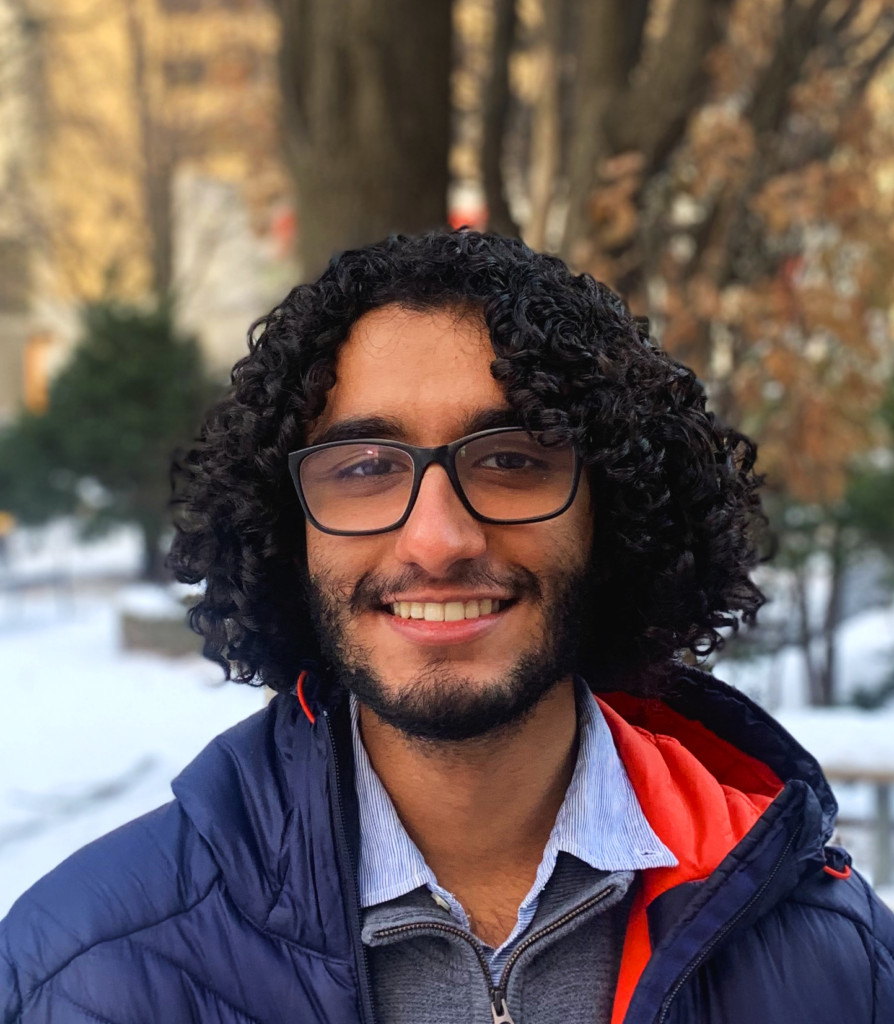
Badr Karam Aziz Abbas
Chemical Engineering at UTSG
Badr Abbas is a third-year chemical engineering student with interests in sustainability and education. Wastewater treatment plants currently produce biogas as a byproduct – a low value greenhouse gas (GHG). Abbas’s work, entitled “Transport of Medium Chain Fatty Acids Through Rubbery Polymer Films,” is part of a collaboration between the Advanced Membrane and Microbiome Engineering labs to replace biogas with bio-sourced medium chain fatty acids (MCFAs). MCFAs are valuable chemicals, currently produced unsustainably from palm oil, and their production would increase the economic viability of wastewater treatment operations.
Abbas’s role in the project is to assess the impact of polymer chemistry on the separation of MCFAs. He synthesizes films of polydimethylsiloxane and custom polyacrylates, followed by testing MCFA transport in diffusion cells and quantifying permeate concentrations using GC/MS.
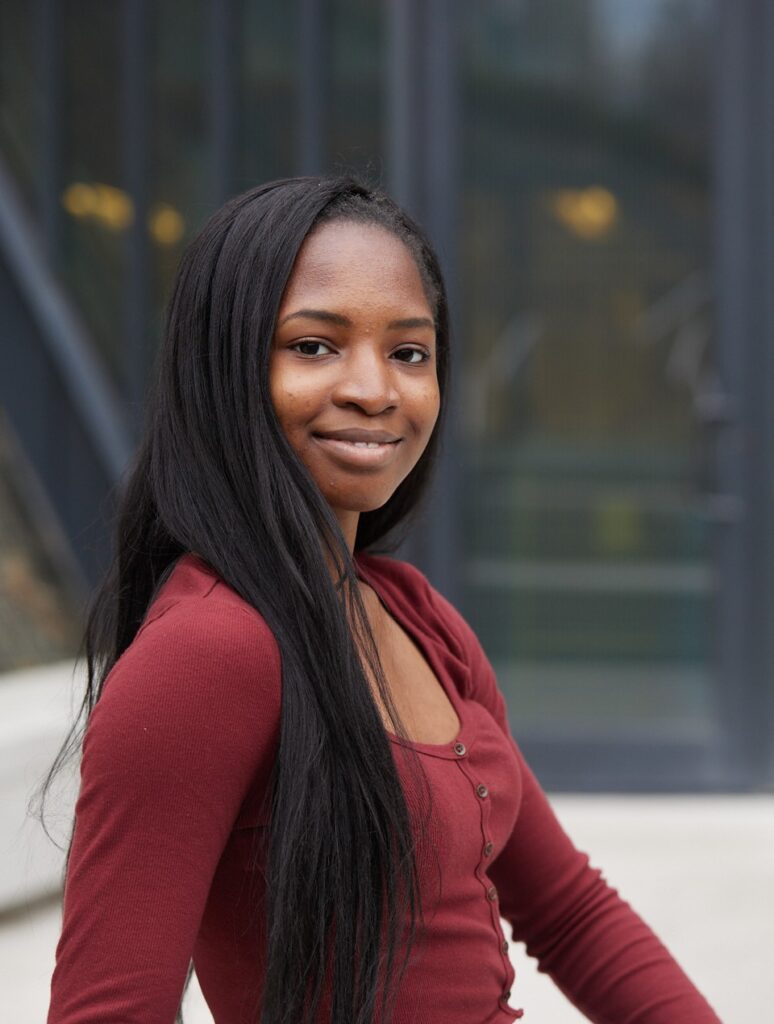
Tomi Bamigbade
Architectural Studies at UTSG
My proposed topic is focused on finding ways that buildings can encourage an active lifestyle for people. My experience as an elite athlete for seven years and as a personal trainer has shown me the importance of a healthy lifestyle.
In my research trainee position with Professor Alstan Jakubiec I work on a pilot study to find an effective way of coding people’s activities in buildings for the purpose of assessing the effect of the building on the health and wellbeing of the occupants. From May 2022 – Sept 2022, I will be working with an image-based dataset, learning coding/labeling techniques, utilizing machine learning classification tools & language processing tools, and developing data management techniques to form subjective survey data.
This is just the beginning of my journey in research. I am learning how research can help architects make informed decisions that can make buildings more effective in helping their inhabitants. Conducting new research breathes new life into a mature discipline.